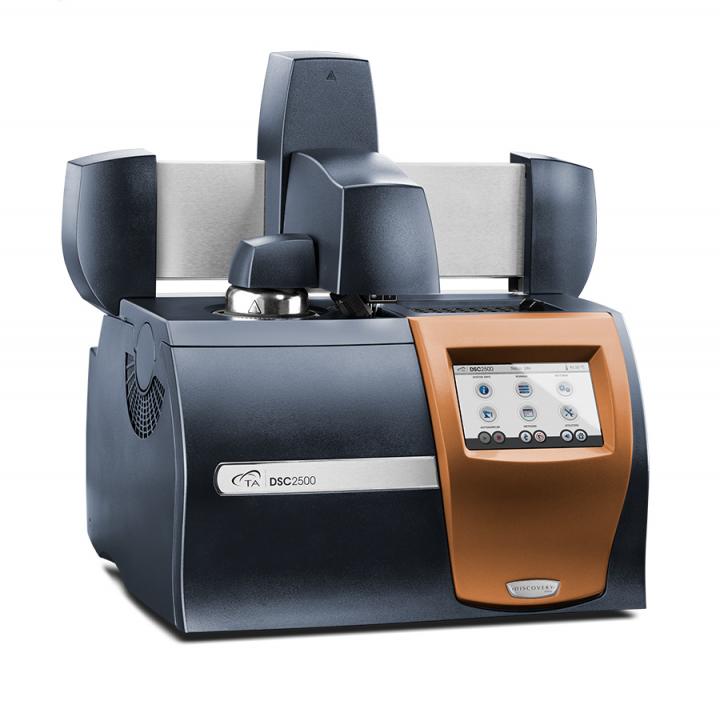Principle
Differential scanning calorimetry, or DSC, is a thermoanalytical technique in which the difference in the amount of heat required to increase the temperature of a sample and reference is measured as a function of temperature. Both the sample and reference are maintained at nearly the same temperature throughout the experiment. In general, the temperature programme for a DSC analysis is designed such that the sample holder temperature increases linearly as a function of time.
If a material is heated a chemical of physical reaction can occur which is linked to absorption or release of heat. DSC equipment is able to measure this energy changes.
© 2022 TA Instruments. A division of Waters Corporation. All rights reserved
Testing procedure
A small sample (± 5mg) is put in an aluminium container which is then heated at a constant speed (eg. 10°C/min). The energy needed for this process is constantly measured. In case of chemical or physical reactions, a certain amount of energy will be absorbed or released. This leads to a distortion of the base line of the thermogram. The distortion is typical for the process.
Testing applications
Determination of:
- Glass transitions
- Melt and Crystallisation temperatures
- Thermal and oxidative stability
- Cross linking degree and other
- Small crystalline impurities in the material
- Similarities between materials
Leaflet
Send your samples to
Centexbel-VKC
Etienne Sabbelaan 49
8500 Kortrijk
Belgium
+32 56 29 27 00
info@vkc.be




